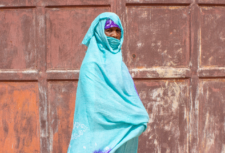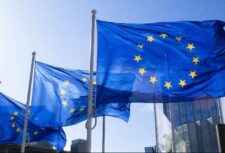Disclaimer: This article is more than 7 years old, and may not include the most up-to-date information or statistics. Please verify information with more recent sources as needed, and if you have any questions contact our Press Office.
Louise Eldridge on the Uzbek Textile Protocol which will lower import tariffs for Uzbek products to Europe, including cotton marred by state sponsored forced labour.

21 December 2016
On December 14 the European Parliament voted consent for a textile trade deal that will free up trade with Uzbekistan and may effectively condone mass forced labour in the Uzbek cotton industry.
It is a disheartening decision. We have successfully halted this for 5 years – in 2011, under pressure from cotton campaigners, MEPs overwhelmingly rejected a proposal for the same trade deal until it could be proven that Uzbekistan had implemented ‘concrete reforms’ and yielded ‘substantial results in such a way that the practice of forced labour and child labour is effectively in the process of being eradicated’ in the country’s cotton industry. Since then, again and again we have managed to persuade MEPs to defer the treaty.
Unfortunately, MEPs are now appear to be satisfied that the situation is improving, citing a better situation with regard to child labour and closer cooperation on the part of the Uzbek authorities, including several mechanisms to try to eradicate forced labour. Although a number of MEPs supported our call for a postponement of the vote until full evidence from the 2016 harvest could be examined, this was rejected by the Parliament overall.
What the MEPs do not seem to recognise is that while child labour has been almost eliminated, the majority of the burden has now shifted to adults, including teachers and medical workers, thousands of students, and people working for public and private enterprises. Forced labour remains a reality for more than a million people in Uzbekistan every year. What’s more, there is evidence that the Uzbek government is encouraging organised coerced participation in the cotton harvest on a systematic national level, sending directives to regional officials.
Evidence gathered by independent civil society monitors shows that the conditions set by the EU Parliament in 2011 have not been fulfilled. It is worrying that MEPs voted to agree the textile trade protocol before examining evidence from independent monitors who risked their lives to document forced labour during the recent harvest.
Anti-Slavery International will continue to work support the work of independent monitors and to work with the European Parliament to scrutinise the situation in Uzbekistan. The European Parliament needs to be prepared to withdraw its consent if forced labour continues en masse in Uzbekistan in further harvests.
Follow Louise on Twitter: @louise_eld





